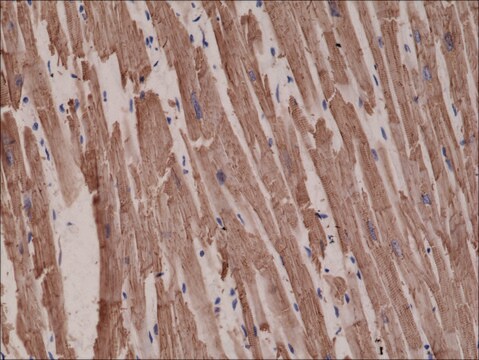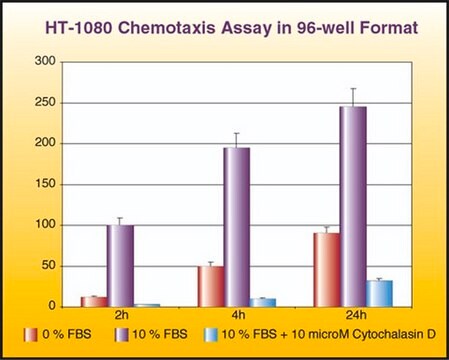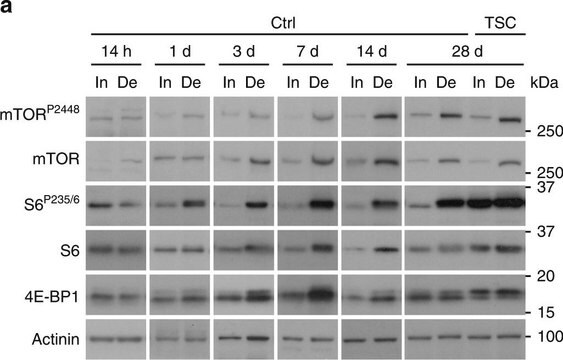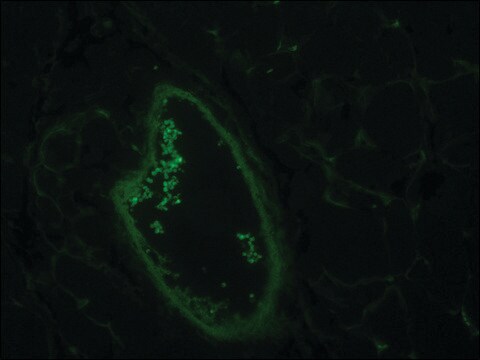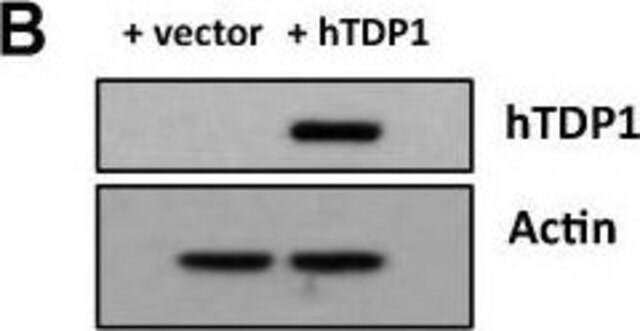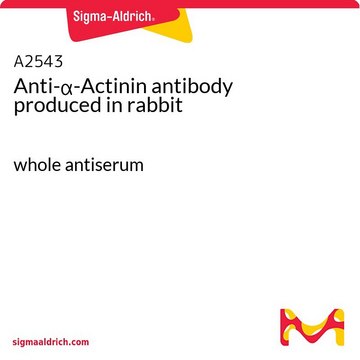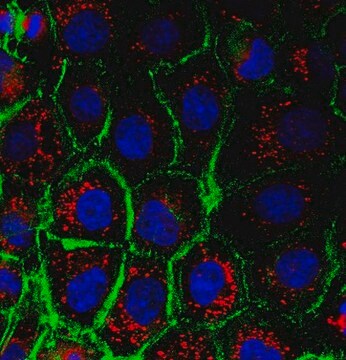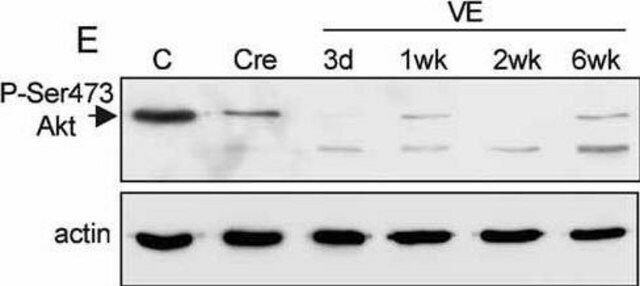A2172
Monoclonal Anti-Actin (α-Sarcomeric) antibody produced in mouse
clone 5C5, ascites fluid
Sinónimos:
Mouse Anti-Actin
About This Item
origen biológico
mouse
conjugado
unconjugated
forma del anticuerpo
ascites fluid
tipo de anticuerpo
primary antibodies
clon
5C5, monoclonal
contiene
15 mM sodium azide
reactividad de especies
rabbit, carp, rat, sheep, guinea pig, human, snake, bovine, frog
técnicas
immunohistochemistry (formalin-fixed, paraffin-embedded sections): 1:500 using human skeletal and cardiac muscle
immunohistochemistry (frozen sections): suitable using human skeletal and cardiac muscle
indirect ELISA: suitable
western blot: suitable
isotipo
IgM
Condiciones de envío
dry ice
temp. de almacenamiento
−20°C
modificación del objetivo postraduccional
unmodified
Información sobre el gen
human ... ACTA1(58) , ACTC1(70)
mouse ... Rwdd2a(69519)
rat ... Acta1(29437) , Actc1(29275)
Descripción general
Inmunógeno
Aplicación
- immunofluorescence
- double immunostaining
- double labelling terminal deoxynucleotidyl transferase dUTP nick end labeling (TUNEL) immunofluorescence staining.
Acciones bioquímicas o fisiológicas
Forma física
Otras notas
Cláusula de descargo de responsabilidad
Not finding the right product?
Try our Herramienta de selección de productos.
Código de clase de almacenamiento
10 - Combustible liquids
Clase de riesgo para el agua (WGK)
WGK 3
Punto de inflamabilidad (°F)
Not applicable
Punto de inflamabilidad (°C)
Not applicable
Certificados de análisis (COA)
Busque Certificados de análisis (COA) introduciendo el número de lote del producto. Los números de lote se encuentran en la etiqueta del producto después de las palabras «Lot» o «Batch»
¿Ya tiene este producto?
Encuentre la documentación para los productos que ha comprado recientemente en la Biblioteca de documentos.
Los clientes también vieron
Nuestro equipo de científicos tiene experiencia en todas las áreas de investigación: Ciencias de la vida, Ciencia de los materiales, Síntesis química, Cromatografía, Analítica y muchas otras.
Póngase en contacto con el Servicio técnico